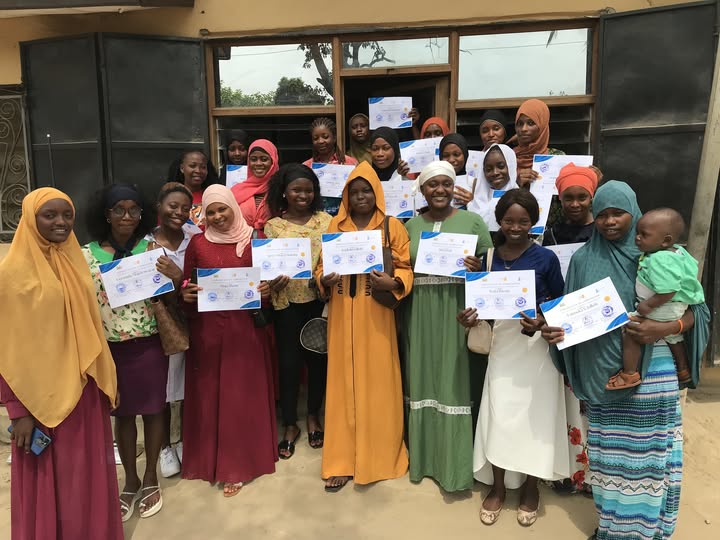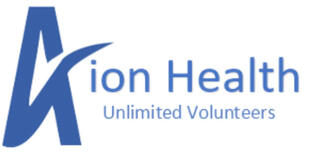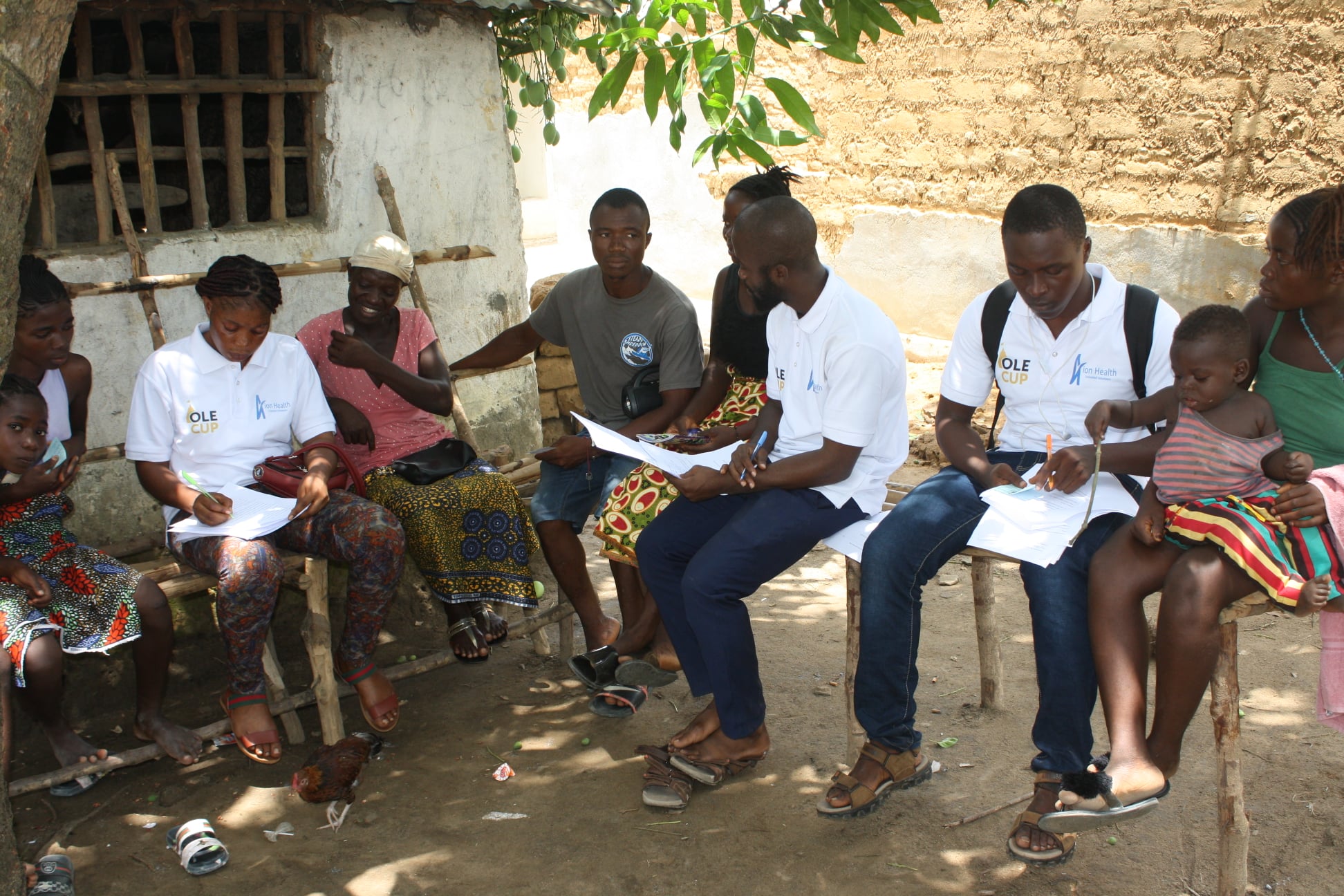RESEARCH
EDUCATION
Introduction
Education is one of the most powerful tools in improving public health outcomes. At Aion Health SL, we recognize that transforming healthcare in Sierra Leone requires more than just medical interventions — it demands empowering individuals and communities with the knowledge and skills to actively participate in their own health and wellbeing. This holistic vision of education as a health determinant drives our comprehensive programs that integrate community awareness, school health, volunteer training, and digital literacy.
Sierra Leone faces staggering health challenges, with some of the highest maternal and infant mortality rates in the world—1,165 deaths per 100,000 live births and60.8 infant deaths per 1,000 live births respectively (World Bank, 2023). These alarming figures are compounded by poor access to quality health information and services, especially in rural areas. Aion Health SL’s education initiatives aim to address these gaps by fostering health literacy, preventive practices,and community engagement — essential ingredients for lasting health improvements.
Community Health Education: Building Awareness and Behavioral Change
Context and Need
In Sierra Leone’s rural communities, limited access to formal education and pervasive poverty often mean health knowledge is low. Many preventable diseases, such as malaria, diarrhea, and maternal complications, persist due to lack of awareness about causes, symptoms, and prevention. For instance, malaria accounts for approximately 38% of outpatient visits and 21% of hospital deaths (WHO Sierra Leone Country Profile, 2023). Proper knowledge and early care-seeking behaviors could dramatically reduce this burden.
Our Approach
Aion Health SL deploys culturally sensitive community health education programs tailored to local languages, traditions, and norms. Using methods such as interactive drama, storytelling, community radio broadcasts, and group workshops, we deliver messages about:
- Maternal and child health: Encouraging prenatal care visits, skilled birth attendance, and newborn care.
- Nutrition: Promoting exclusive breastfeeding, balanced diets, and micronutrient supplementation.
- Disease prevention: Malaria control through insecticide-treated nets, hygiene practices to prevent diarrhea, and awareness about HIV/AIDS and tuberculosis.
- Sanitation and hygiene: Proper handwashing, latrine use, and safe water handling.
Evidence of Impact
Studies have shown that health education campaigns can reduce disease incidence by up to 40% and improve maternal health outcomes significantly (WHO, 2020). For example, a community-based education program in neighboring Liberia resulted in a 25% increase in antenatal care attendance and a 15% reduction in home births,directly correlating to reduced maternal mortality (Global Health Action,2021).

School Health Initiatives: Cultivating Healthy Futures
Importance of Schools in Health Promotion
Schools are critical venues for instilling lifelong health habits in children and adolescents. Aion Health SL partners with schools to integrate health education into daily curricula and extracurricular activities, with a special focus on empowering girls and vulnerable students.
Program Highlights
- WASH Education: Teaching students proper water, sanitation, and hygiene practices to reduce waterborne diseas
- Menstrual Hygiene Management (MHM): Providing education and sanitary supplies to girls, reducing absenteeism and stigma
- Nutrition and Lifestyle: Encouraging healthy eating habits and physical activity to combat malnutrition and emerging non-communicable diseases
- Health Clubs and Peer Education: Empowering students to become health ambassadors who educate their peers and families.
Outcomes and Research
UNICEF reports that improved WASH facilities and education in schools can increase girls’ attendance by 15-20%, a crucial factor for gender equality and empowerment(UNICEF, 2023). Furthermore, evidence suggests that children exposed to school health programs have higher immunization rates, lower incidence of parasitic infections, and better academic performance (Lancet Child & Adolescent Health, 2022).
Training Health Volunteers: Building Local Capacity and Sustainability
Why Health Volunteers Matter The shortage of formally trained healthcare professionals in Sierra Leone is acute—there are only about 0.2 doctors and 0.5 nurses per 1,000 people (World Bank, 2022). To fill this gap, Aion Health SL recruits and trains community members as health volunteers who deliver basic health education, assist in clinics, and collect vital data.Training Components Our volunteer training covers: Impact WHO studies confirm that community health workers, when trained and supported, can reduce maternal and child mortality by up to 30%, increase immunization coverage, and improve disease surveillance (WHO, 2018). Our volunteers strengthen trust between communities and health services, ensuring continuity and culturally sensitive care.
- Basic healthcare and first aid
- Maternal and child health promotion
- Data collection and reporting using mobile technology
- Infection prevention and care
Evidence of Impact
Studies have shown that health education campaigns can reduce disease incidence by up to 40% and improve maternal health outcomes significantly (WHO, 2020). For example, a community-based education program in neighboring Liberia resulted in a 25% increase in antenatal care attendance and a 15% reduction in home births,directly correlating to reduced maternal mortality (Global Health Action,2021).
Digital Literacy and Health Technology Training:Bridging the Digital Divide
Embracing Innovation for Health Incorporating digital tools into health education and service delivery is a game-changer. Aion Health SL provides digital literacy training to volunteers and healthcare workers, enabling them to use mobile health apps for:Benefits and Evidence Digital health interventions have been shown to improve adherence to treatment,increase health-seeking behaviors, and enhance data accuracy (Journal of GlobalHealth, 2022). In Sierra Leone, mobile health projects have increased antenatal care visits by 20% and reduced delays in emergency referrals.Empowerment Through Knowledge: The Broader Impact Beyond Health Education underpins empowerment. As community members gain knowledge and skills, they become advocates for their own health and active participants indecision-making processes. This shift contributes to:
- Increased demand for quality health services
- Better household health practices
- Greater gender equality through informed reproductive choices
- Enhanced resilience against future health crises
Aligning With Sustainable Development Goals (SDGs) Aion Health SL’s education initiatives align with several SDGs, including:
- SDG 3: Good Health and Well-being
- SDG 4: Quality Education
- SDG 5: Gender Equality
- SDG 6: Clean Water and Sanitation
By intertwining education and health, we create a virtuous cycle that lifts communities out of poverty and poor health.
- Tracking patient records and referrals
- Delivering remote health education via SMS and voice calls
- Monitoring program indicators and outcomes
Conclusion
Education is the foundation upon which all of Aion Health SL’s efforts rest. By fostering health literacy, training local volunteers, integrating health education in schools, and leveraging digital technologies, we empower Sierra Leonean communities to overcome barriers to health and thrive. Our vision is clear: a future where every individual, regardless of location or background, has the knowledge and tools to lead a healthy life. Through education, we build that future — one informed mind at a time.


